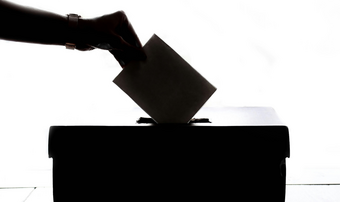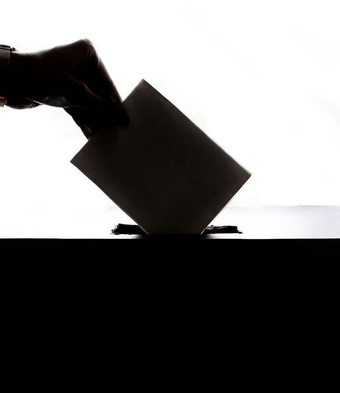Why attendance at a football match says something important about democracy, pluralism, and freedom of belief

Football is often called the “beautiful game” because it brings people together across backgrounds, beliefs, and borders. Yet this week’s decision to ban Maccabi Tel Aviv supporters from attending their Europa League match against Aston Villa on 6th November revealed something troubling about how fragile that togetherness can be.
On Thursday 16th October, Aston Villa announced that no Israeli away fans would be allowed at Villa Park. West Midlands Police classified the fixture as “high risk,” citing security concerns. Within hours, Prime Minister Keir Starmer condemned the move as “wrong,” warning that Britain “must never give ground to antisemitism.” Jewish community groups called the decision “perverse,” arguing it punished Jewish supporters simply because authorities could not guarantee their safety.
Whatever the operational arguments, this episode poses a deeper question: what kind of society do we want to be? One shaped by fear, or by freedom and hospitality?
At first glance, a dispute about football security might seem trivial. But moments like this test the moral foundations of a nation. When safety concerns lead to collective exclusion, we reveal what we truly believe about freedom, equality, and the worth of every person. These are not just political ideals; they are spiritual ones. For Christians, they remind us why democracy and pluralism matter, and what it means to defend them.
Why Christians should defend democracy and pluralism
Some Christians in Britain feel increasingly misunderstood or marginalised. Yet we still enjoy remarkable freedoms: to worship, speak, organise, and advocate. These are the fruits of a democratic and plural society that, however imperfect, reflects biblical wisdom about human nature.
Scripture does not command democracy, but it affirms the truths that sustain it. Every person is made in the image of God (Genesis 1:27), endowed with dignity and moral worth. Power, therefore, must be shared and accountable. Since the Fall has corrupted every human heart, no one can be trusted with unchecked authority.
C. S. Lewis captured this insight:
“I am a democrat because I believe in the Fall of Man… Mankind is so fallen that no man can be trusted with unchecked power over his fellows.”
Democracy, then, is an act of theological realism. It restrains sin, honours human worth, and creates the space for truth and faith to flourish. Christians should therefore be among its strongest defenders; not because it is perfect, but because it protects freedom and limits power.
Pluralism as a theological calling
The theologian John Inazu describes confident pluralism as holding strong convictions while granting space for others to live according to theirs. True pluralism is not moral confusion; it is hospitality rooted in Christ. Because God is sovereign, we need not fear difference.
The Aston Villa decision shows what happens when pluralism falters. A group of ordinary fans, many of them Jewish, will be excluded not because of what they have done, but because of who they are. When Jewish people in Britain feel unsafe, when synagogues need police protection, and when conspiracy theories flourish unchecked, our silence would betray our faith.
But we must be consistent. Just as antisemitism is a sin against the image of God, so too are Islamophobia, racism, and every ideology that dehumanises others. The parable of the Good Samaritan reminds us that neighbour-love crosses social and religious boundaries. Jesus does not ask us to agree with the Samaritan’s theology; He calls us to imitate his mercy.
Pluralism, rightly understood, is moral strength. It is the courage to live at peace with those who differ, trusting that truth does not need protection from freedom.
Convicted Civility: The Christian way of power
At CARE, we speak of bringing truth and grace together; what we call convicted civility. As our statement on faith in public life puts it:
“We are for truth and grace. We think the ‘how’ is just as important as the ‘what’. Jesus Himself was full of grace and truth.”
That posture matters profoundly today. Public discourse has grown coarse and cynical. Yet followers of Christ are called to speak with humility and generosity, recognising that even our fiercest opponents are made in God’s image.
To defend democracy and pluralism, Christians must model conviction without cruelty, clarity without contempt. “Let your gentleness be evident to all,” wrote Paul (Philippians 4:5). Convicted civility refuses to mirror the anger of the age. It offers a better witness which is principled, peaceful, patient.
A blind spot exposed
The Villa–Tel Aviv story exposes a troubling inconsistency. Britain rightly condemns racism against Black or Asian communities. Yet it sometimes hesitates to name antisemitism, a form of racism cloaked in politics. We cannot claim to be a fair society if Jews are denied safety because the Israeli government is controversial.
Equally, hostility toward Muslims has become respectable in some quarters. Christians must reject that temptation utterly. The God who commands us to love the stranger (Deuteronomy 10:19) makes no exceptions based on creed.
If we tolerate prejudice against one group, we legitimise prejudice against all. The gospel tears down dividing walls, it never builds them up. Racism, antisemitism, and Islamophobia wound the body politic and grieve the heart of God. They are incompatible with the confession that every person bears His image.
Yet the challenge is not only to critique others but to examine ourselves. The Church has not always lived up to its calling. Too often it has given cover to persecution of other ethnicities, faiths, or political views.
At CARE, we want to do difference and disagreement well. Our Statement of Faith gives us common ground. From the foundation of our shared beliefs, we can disagree about many things and share sincere differences on many issues. For example, CARE is not a complementarian or egalitarian organisation; my colleagues represent both positions. Similarly, we guard our non-partisan status jealously, and do not align oursleves to any one party, with our team reflecting a range of different and varied political allegiances.
Rather than seeing this as a weakness, it is our strength. We challenge each other to think more deeply, examine more carefully, listen more intently, and imagine more boldly how to apply God’s word to the challenges of our day.
Therefore, as we call on political leaders, police, and local authorities to act justly, we must also confront our own blind spots and prejudices. This is part of how God sanctifies us.
Democracy as a discipline of love
Defending democracy is not only a civic duty; it is a spiritual discipline. It trains us to share power, to listen before we speak, and to accept imperfect outcomes without violence. It is, as Richard John Neuhaus wrote, “the institutionalisation of humility.”
Democracy requires more than elections. It depends on habits of honesty, patience, compromise, and respect. These are fruits of the Spirit as much as civic virtues: love, joy, peace, patience, kindness, goodness, faithfulness, gentleness, and self-control.
When Christians defend democratic norms —free speech, independent courts, peaceful transfer of power — we are not protecting an ideology but preserving the space where truth can be pursued and faith can flourish. To defend pluralism and democracy is to “seek the peace and prosperity of the city” (Jeremiah 29:7); to build conditions where every neighbour can live free from fear.
Choosing courage over fear
The Aston Villa story may fade from the headlines, but the deeper challenge remains. We are living through an “age of democratic anxiety.” Trust in politics is low; polarisation is high. The temptation to retreat into grievance or tribalism is strong. But the Christian calling is different.
We are a people of hope, not fear. We know that no human government will ever be perfect, but we also know that God works through imperfect means to bless and restrain a fallen world. Democracy and pluralism are among those means. They are fragile, yes, but worth defending.
As 1 John 4:18 reminds us, “There is no fear in love. But perfect love drives out fear.” Love, not fear, must shape Christian public witness. Love that protects the vulnerable, honours conscience, and upholds justice for all.
If the Church can embody that love with conviction and civility, then even in a divided age, Britain might glimpse something of the kingdom where every tribe, tongue, and nation find their place.






